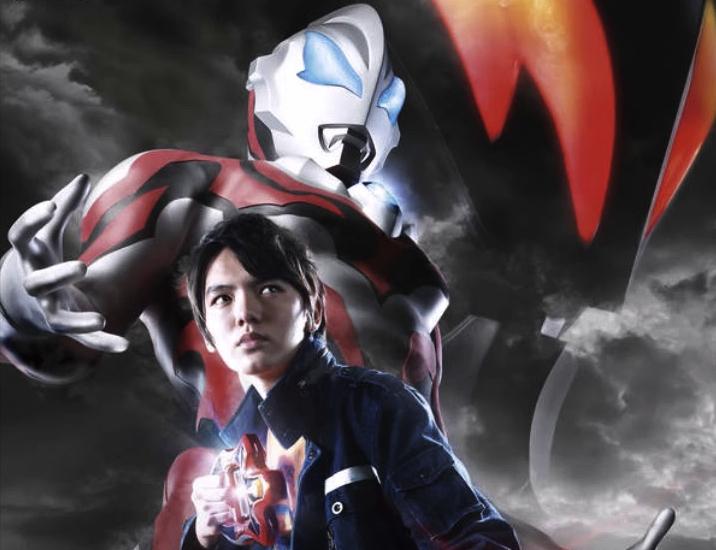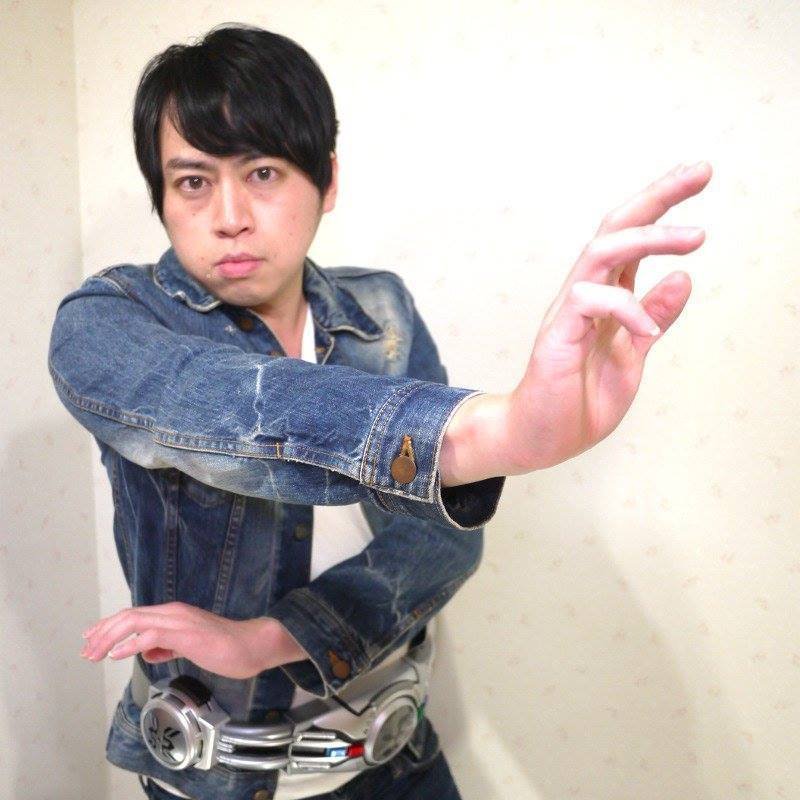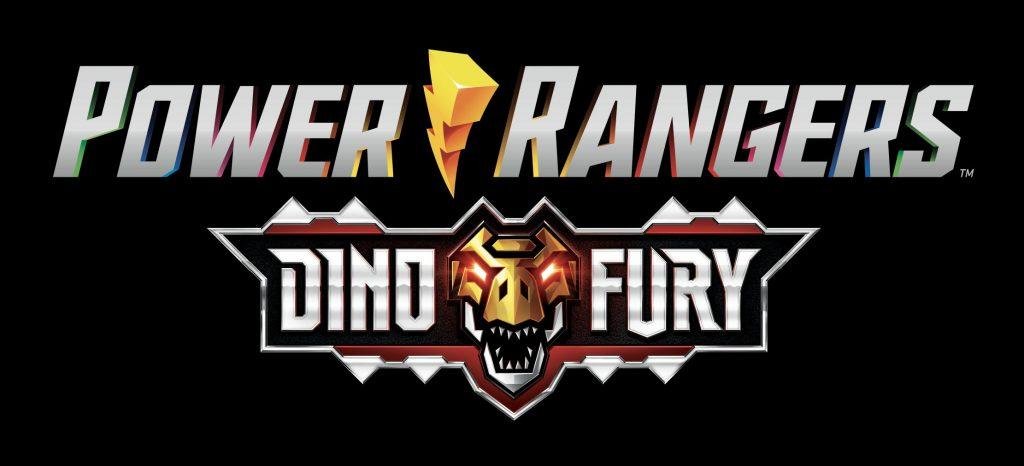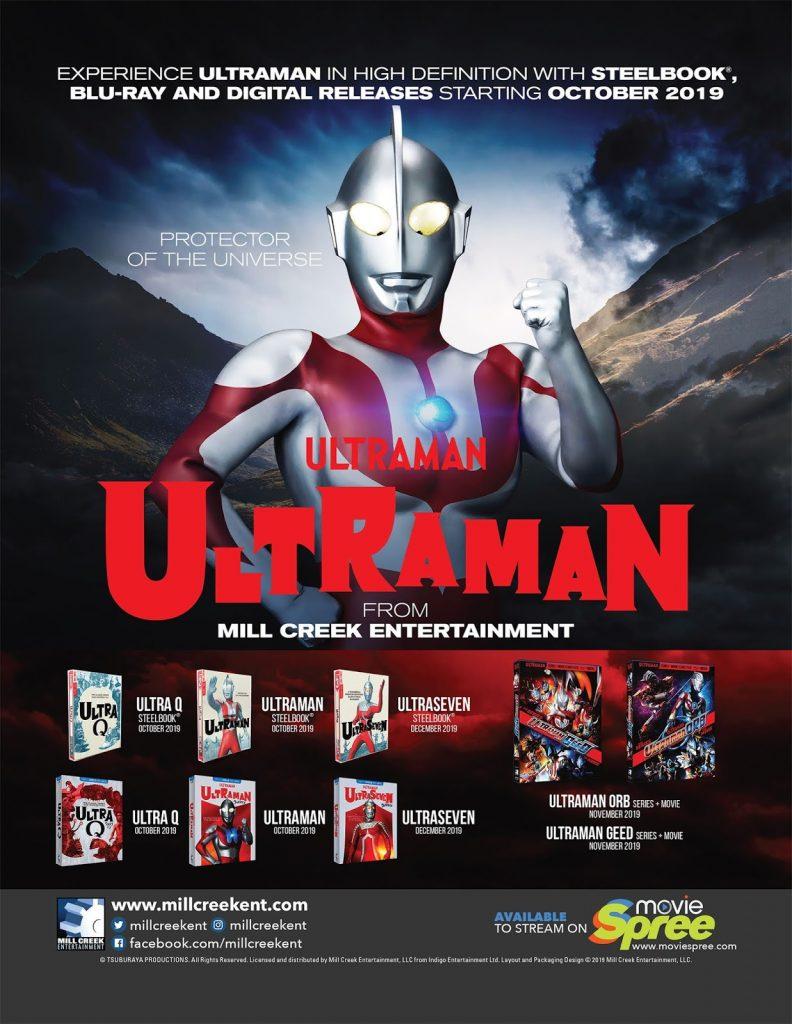In the new Ultraman Geed, the young son of the nefarious Ultra villain Belial must rise up to save humanity from ultimate extinction. It’s the perfect launchpad for an epic entry into the tome of Ultraman stories, years in the making. With the pedigree on display here, you’d have no reason not to think this would rock every sock on this and all other Earths. But while the show isn’t totally abysmal, we can’t tell yet if it counts as great either.
If you just glance the stats for this show, it would seem to have the building blocks of something remarkable.
Since Belial’s debut in the Ultra Galaxy Legends movie, the ambitious Ultraman-gone-bad has grown in popularity, challenging literal armies of Ultra heroes across the multiverse. The idea that he might have a son who opposes him, with powers that rival his own, was an inspired choice. Ultraman Zero sweetens the pot even more, having tangled with Belial in his first appearance (and can’t seem to get away from him since). So you have two characters from Ultraman’s recent past (Zero himself being the son of the OG Ultraseven) and the next generation joining their ranks in a new adventure. All of this surveyed by main series director Koichi Sakamoto, whose familiarity with this mythology ought to be pretty damn good, since he was the man who helped create it, having also directed the Ultra Galaxy Legends movie. They’ve seriously stacked the deck with elements that would grab the attention of recent fans. So why then does this all just seem kind of average?
For some horrifying reason, the show has chosen to make Riku, Belial’s clueless human-looking offspring, a child. Not the first Ultra-kid in the franchise, but they’ve sensibly avoided ever featuring one as the lead for a traditional TV series, at least until now. I’m not aggressively against the idea of ever having kids as heroes in tokusatsu, but it’s a tricky formula to get right. More often than not, the child proves to be annoying, or we’ll watch the show bend over backwards to accommodate wacky scenes that someone their age normally wouldn’t be involved in, and this viewer is more likely to roll eyes in irritation than punch the air with excitement. This stuff just doesn’t do it for me.
To be fair, Riku and the actor that portrays him are not quite as young as they read to me on-screen (Ultraman Ginga starts at a similar age), and that’s the real criticism. It might be interesting if Hamada Tatsuomi’s character had a tangible connection to the one he played years earlier in the second Ultraman Zero movie (also featuring Belial), and this whole thing is an intentional in-universe reference rather than a cute meta gag. Like Belial somehow “created” Riku based on the alien kid his nemesis rescued in a previous conflict. It might make some of the current headache worth it.
Salting the wound just enough to make me feel the sting, the show begins in the most basic, paint-by-numbers way one could possibly imagine. A monster appears, virtually out of nowhere, and Riku (an orphaned kid with a random-ass alien friend that is like a less intrusive Jar-Jar for toku) just states out loud that he wishes he had the power to fight the beast and save everyone. Because that’s a natural thing to say in this universe, I guess. Hilariously on cue, a disembodied computer voice directly informs Riku that, yes, he actually does have that kind of power, and it simply tells him outright the procedure involved in using it.
Am I the only toku fan that finds this sort of thing kinda bland? Like, there’s no style or intrigue (outside of the obvious stuff a lot of us knew going in), it’s just a sudden, flat-out, step-by-step explanation of powers and how to use them. Riku, of course, accepts all of this – the secret lair, the computer servant here to fulfill his every wish, the abrupt endowment of superpowers right after he asked for them – like he just got extra fries at the McDonald’s drive-thru. There’s almost no curiosity or dramatic flair. It just is exactly what it seemed like it could be without even watching it. There is almost nothing else there at all!
I feel like I’ve made this comment about fifty times in the last couple weeks, but this is another sad case where the lead character is actually the weakest of a fairly interesting cast. It’s just strange, considering his apparent backstory, and the many varied links he could have with virtually everyone and everything happening. You could almost make the show about any of the other four key figures and get something more exciting.
Laiha, the driven, sword-wielding young woman, hunts down people blessed with mysterious powers, in the hopes of one day resolving her tragic past. She and Riku have to find these empowered humans before the vengeful Kei can use their gifts for his own means. Meanwhile, the AIB investigates strange occurrences related to alien sightings, and Riku’s childhood friend Moa must keep her classified job with telepathic shapeshifter Zena a secret from the rest of the world as they track and expel any hostile creepy-crawlies they may bump into. Injured in an act of heroism, the timid salaryman Leito is almost killed, until Ultraman Zero merges with him, thus fighting together on Earth as they work to unravel Kei’s plan.
I particularly like the duality of performance by Ozawa Yuta, transitioning from the nervous, buttoned-up Leito to the tough, in-your-face showboat that is Ultraman Zero, inhabiting poor Leito’s body and occasionally poking at the carefully-built house of cards that is his life. With the few awkward situations we’re allowed to see on this show, one wonders if we’re not missing out on the most scandalous parts when he’s alone (so to speak) with the misses. Likewise, another great pairing, which has gotten considerably less development as yet, is that of the two AIB agents, Moa and Zena. Despite the fact that Zena never speaks out loud, his constant “too old for this shit” facial expression is a complete delight, especially when coupled with Moa’s outrageously wrong behavior for a supposedly serious covert agency neutralizing hidden threats. They’re the Best Match!
What’s frustrating is that the show provides this sandbox for us to play in but only goes there every once in a while. You have some fun with the AIB’s crack team of investigators in the sci-fi buddy cop story and, just when it’s getting really interesting, the boomerang turns back around toward boring Riku and his nonplussed life of mega-convenience that he never wonders about. You’re enjoying the antics of Zero and Leito as the two personalities in one body stumble through their pursuit of the evil Leito, until the rubber band yanks you back, snapping at the feet of boring Riku and his alarming growth spurt (I’d swear we’re watching him grow taller than everyone with each passing episode). Throw in a cringey subplot where the two girls compete for this boy’s attention and I start to wonder if you’re doing this on purpose.
As we alluded to previously, Ultraman Geed may just be a little too familiar for its own good. It might have been a fresh idea for the lead Ultra to transform by combining the totem powers of his heroic predecessors back during Ultraman Orb. Or to summon up weapons and abilities inspired by heroes and villains in Ultraman Ginga S or Ultraman X. But we’re several years into this, with numerous iterations of the same magic trick, and it’s maybe starting to get a little crusty. Beyond the story reasons to do this, it’s possible that it was decided that this is a way to keep people interested in previous Ultramen (read: their toys), without Bandai needing to come up with millions of new designs for them. Obviously, you still get new heroes with form changes, but the fact that the “fusions” are always presented with the original suits showing up first and then smashing together, the whole thing works like an ad for everything that came before. I was onboard for this in the beginning. Then they did it again. And again. And eventually, you just have to know when to call it. Or at least, like… wait a couple years before repeating yourself. Right?
Creating combo-forms of elder heroes shouldn’t be the only way to pimp your wares. Despite the fact that he too gets an upgrade (and was used for one of Orb’s transformations), Ultraman Zero is appearing regularly in this show. Maybe the next series can simply have more appearances of veteran Ultras, as characters rather than as props. Or, if we truly are determined to keep reeling in power-ups from Ultraman’s mythology pond, at least vary it a little more. And that goes for the characters as well as the merch they come with.
While I can appreciate the suave, unimpressed attitude of Kei, Geed’s recurring arbiter of villainy, I can’t help but feel like this character would not exist if it weren’t for the popularity of Juggler from the superior Ultraman Orb. The darkly-dressed maker of mischief walks around, smiling at every turn of events like it’s all part of the plan, laughing to himself over what he’ll do after collecting the vague magical whatever-the-hell he’s after, talking to the heroes about their ambiguous past that you should just go ahead and accept now won’t ever fully be explained. As a character, he’s not bad, he’s just been done. Not years ago, or in some other franchise, but literally months ago, in this one. Like… why?
And yet, I’d still take a dozen Keis over just one Riku, whose simple acceptance of the totally absurd could possibly be seen as endearing, or the result of him being the son (and best friend) of an alien, making it easier for him to grasp the weirdness. But if that’s what they’re going for, I’d have liked to hear someone else maybe ask him about that, and then provide some kind of an answer. Obviously, secrets are being held back for future episodes, but that’s not what we’re talking about here. I’d just like some basic understanding of who he is as a “regular person” and where he came from and why his life is so impossibly simple for someone in his ridiculously unique position.
In the meantime, I’ll continue to smile and look at the pretty colors when the monsters show up to get their asses handed to them by Ultraman Zero.
Also Geed. But mostly Zero.
I think I’ve gotten used to Geed’s suit designs now, but it was a harsh journey getting there. I think, in the process of creating a character inspired by a notorious bad guy, they might have overcorrected and given him a form that just doesn’t wow me. The word “ugly” comes to mind. Not merely due to the implied villain connection, because there are lots of toku enemies with some incredible designs. Even reformed villains who change their ways (and their costumes), fighting against the forces they once stood with. Geed just don’t look right, fam! But like I said, we have a Zero. And a Zero Beyond. And a Hikari too, sort of. I’ll take what I can get.
As we approach the halfway point of the series, my feelings on Ultraman Geed are a bit of a mixed bag. I wish I had better news. It’s the first Ultraman series in years I haven’t greatly enjoyed, and that includes the Orb Origin Saga, an online streaming series I had every reason to believe was not going to wow me but ended up becoming a huge favorite. For everything that excites me about this show, there’s some nagging bit that comes attached, hanging off of it like the kid in the grocery store whose parents refuse to discipline them when they turn the place into their private jungle gym while you’re just trying to get some Gatorade. It’s a rare instance where you might wish you had one of Belial’s impractically large hands just so you can show somebody the back side of it.
And if it looks like a weird coincidence that we end with an analogy about annoying kids, let us be as direct as Geed and say definitively:
Eh.





















